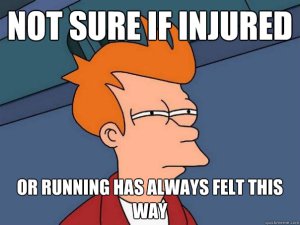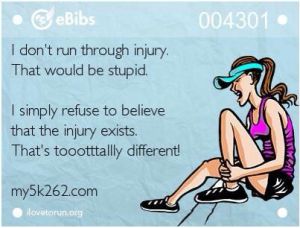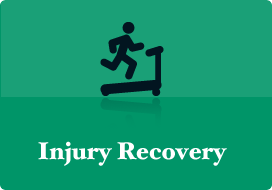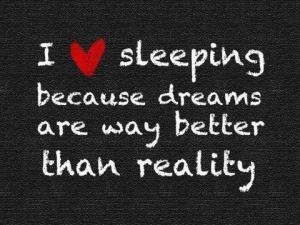Recovering from injury - story of a self-treatment
I never really trusted doctors and consider them as a last resort rather than the remedy to every problem. I am glad to have friends that are doctors. That helped me to get advice from people I trust not because of their education but because I know by other means. Of course, not all doctors are bad and you might get lucky. But until now, experience shown that many are driven by many factors that are not related to your well-being (mass-thinking, return on investment, fear of lawsuits, etc). For my last injury, I did not use the doctor after the day of my CT-SCAN. I just recovered by listening to my body.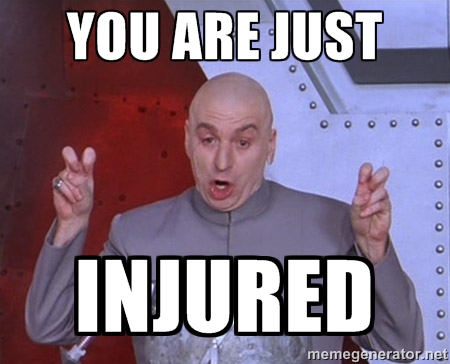
Most of the time, medical advice is useless: your body is designed to recover from most injuries and issues so that if you give it enough time, it will recover. Many countries do not over-medicate their patients and have a better life expectancy (compare the Netherlands with the USA), healthier people and spend much less on medication. This should also show that medical advice is not always related to better treatment. For sure, in some case, looking for medical support is not questionable. But in proportions, many health issues do not need any support (again, think again of The Netherlands where the doctor likely send you home without any treatment and just ask you to come back if things get worse in the next few days - which almost never occur).
There is no magic: for most injuries, you just need to let your body heal, rest. Medication or special treatment could improve but could also make things worst. That is why understanding and trusting your body is more important than anything. Many consider the physical therapy as a must-do but as a matter of fact, they will rather decrease the balance of your bank account than the recovery time (for example, in France, we do not use it, only serious injury go to dedicated rehab centers).
This post is not a medical advice. I am not a doctor and I have no knowledge on what is good or bad for anybody. I really believe that every case is different and this is by understanding how your body works that you can treat injuries. I hope that I have learned enough about myself so that I know how to recover from an injury. I wanted to share this story because it might give idea for others. But in any case this is a prescription and this post will not replace expert advice.
The Story
It was nice morning, ready to hit 7 to 9 miles in Frick Park and go for barbecue afterwards. I was meeting a new trail runner freshly met on social media. Roads and trails were icy and of course, did not put add any traction or screws. The run was great and, at mile 7.3, when coming back on the parking lot, my foot hit an icy spot and I fell and crashed on the ground.
At first, it was not possible to stand up. It took a minute or two. When standing up, I was feeling I was about to pass out. But it already happened during runs or ultras,where you start to be outside your comfort zone. No big deal. I walked home, thinking it will eventually go better. I went for lunch but was barely able to walk. I did not want to go to the Emergency Room but after few hours, I had to face reality. I was seriously injured.
After spending 4 hours in the hospital, the diagnosis was simple: a public ramus fracture with multiple muscles contusion. According to the doctor, the expected recovery time would be at least two months. When leaving the hospital, I was told that I will not be able to stand the day after. Less than 10 hours after, I was moving on my crutches. It was the start of the healing process.
The expert diagnostic
At first, the doctor from the Emergency Room recommended a special therapy from the UPMC Sports Medicine. Having been at UPMC sports medicine twice before, I was not convinced but gave it a shot. My experience was then the same than before: I waited 90 minutes to see a doctor for 5 minutes. Before the visit, a student came and asked me the kind of activities I was doing. During this discussion, he discovered that it was possible to run more than 50 miles a week, which makes me wonder if this place was appropriate to recommend a treatment.
After a few more minutes, the doctor came and finally asked me to come back in 6 weeks if it did not go any better. He recommended physical therapy treatment at the UPMC Sports Medicine. His prognostic was that it should recover in 2 to 3 months. Nothing else, even not an explanation of my CT-scan. Great.
Establishing a Recovery Plan
I just decided not to follow the physical therapy and to avoid coming back again. This was basically just a waste of time. I needed to establish a plan to recover without loosing the base I built during the last months. With already several ultra on the agenda, I had to keep the body trained so that running again will not be too hard.
Basically, the physical therapy consists in training your muscles so that they do not become weak while you do not use your body at its full capacity. I had to do something similar but also trying to preserve my cardio-vascular capacity. The trade-off is that there is a likelihood of making things worst if you try to be active. So, you have to choose low-impact exercises that will provide the expected benefits without creating any more damage.
The recovery plan focuses on three major aspects:
- training: maintain the cardio-vascular activity and train the muscles as much as possible
- nutrition: reduce the calories intake while taking appropriate nutrients to recover
- sleep: give plenty of sleep hours (8+ hours) every day to make sure the body heals properly
Training
First of all, it was important to locate the pain and identify what parts of the body need to heal and what are the ones I can train. By still using the operational muscles, I can limit to make further damages. After 4 days, I was able to walk again again with pain. So, I started to swim, reduce legs movement and focus on the upper body. This provided enough activity to keep high-intensity training and cardiovascular. Then, after a week, I continue to swim but also walk to work.
After two weeks, I was able to walk without so much pain and decided to start exercising on an elliptical bike (which mostly reduces the impact) and work on my core (that so I exercise other muscle groups that will support the overall body). The objective was about 2 hours of training a day.
After three weeks, I was able to run for a while. But it was painful and quickly realized that I was making more damage than good so, I chose to stick to the elliptical. As I was supposed to run a half-marathon in two weeks. The strategy was then to keep what can keep the cardio activity in a good shape and go on an elliptical bike for one hour about every day. I also added some weight training to make sure the muscles will not be too impacted: push ups, pull ups, squat, etc. This was also supposed to make the core stronger.
After four weeks, I start to run on a treadmill 6 miles a day: 3 miles in the morning and 3 miles in the evening. Separating runs avoid exhaustion early in the morning and let your body quickly recover between sessions. I started to run at 10 minutes per mile and increase according to my own feeling. Quickly after a few days, I no longer feel any pain. Sounds like it was correctly healed and I was ready to be back on track.
Nutrition
The nutrition aspect was probably one of the most important: maintaining my usual calories intake without exercising will lead to weight gain (which will then decrease performance later). Running about 10 to 15 miles a day burns about 2000Kcal, which double my basal metabolic rate. In addition, recovering requires appropriate nutrients to rebuild damaged tissues. As soon as I was injured, I stop drinking any alcoholic beverage (which not help) and started eating a lot of protein, calcium (greek yogurt anyone?), fruits and vegetables. The basics is to increase the load of nutrients that help the recovery process. I cut significantly the calories intake, reduce the carbs and stick to healthy fat and protein-rich food.
Over the weeks, I managed to even lose a couple of pounds, staying at the same weight while running twice a day. It can be challenging for some people, especially in a social environment (when you have the opportunity to drink with friends) but this is rather a matter of balance: you drink less than usual (e.g. one drink max) and balance over the next days (eat less and increase slightly your exercise).
Sleep
Last piece of the plan: sleeping. Getting enough sleep is an under-estimated contributor in recovery, either during training and when recovering from injury. This is when your body is sleeping, resting that he will rebuild the damaged tissues. For that reason, this is of primary importance to give him enough sleep.
Sleep deprivation not only makes you cranky or reduce your attention but reduces the overall ability to recover. For that reason, I stayed home every night and sleep from 8 to 10 hours a night. And even before sleeping, the main activities were watching a movie or reading - things that do not require to move too much. All of these decisions were done to maximize the recovery time, reduce the likelihood to party (and potentially overdrink or overeat) and help the body to repair.
The take away
The main takeaway? Most of the time and except obvious extended damage, when injured, you do not need any medication or exam and rather need time to recover. We live in an over-medicated world where everything needs to be inspected, treated and medicated. This approach is stressful (going to the doctor) and intrusive (use of medication your body is not used to). You rely on somebody else who will make choices based on reasons that have nothing to do with your health (making money, avoiding lawsuit, etc.). By listening and understanding your body, you can establish your own recovery plan. This will also help you to recognize a major injury from a major one and manage post-race recovery at best.
In the current example, doctors estimated two months before starting running again but I was able to train again pretty quickly and even race before. Being active, running and bodyweight activities probably help to have a stronger core and recover faster than other folks. This also contribute to recover quicker than expected. But this base should be complemented with an appropriate recovery plan which associates activity, nutrition and (too much underestimated) sleep.
Happy to be back on track, hope to see you soon on the trails.
